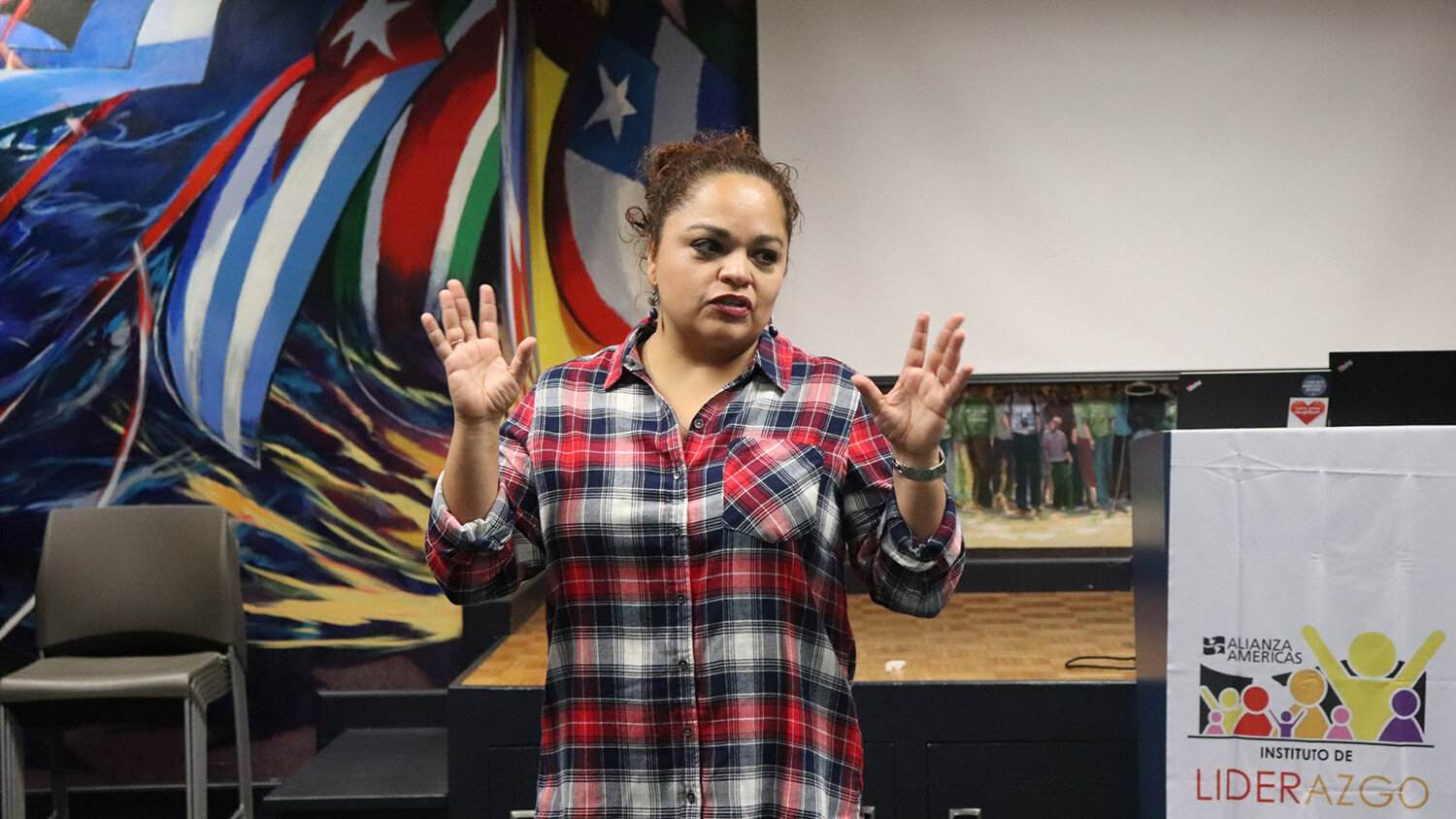Narrowing the Gap
World Relief Chicagoland’s new legal clinic marks a hopeful beginning for people looking to restart their lives in the United States. Photo credit: World Relief Chicagoland
New legal clinic aids Chicago asylum-seekers amid growing migrant crisis
Over the past year, Chicago has grappled with a record migrant crisis. As an influx of asylum-seekers has flooded an already overburdened immigration and refugee resettlement system, one organization is making strides to close in on the overwhelming demand for resources and legal representation: World Relief Chicagoland’s new Asylum Legal Clinic.
A natural outgrowth of the work they have performed for years providing holistic services to immigrants and refugees, the new legal clinic fills an emergent need for asylum seekers to gain legal counsel and representation as they navigate the asylum process. With support from the Walder Foundation, the organization has hired two dedicated attorneys, added a paralegal, and filed claims for 22 clients since the clinic’s launch in fall 2022. They’ve also reached exponentially more people through community workshops and regular communication with World Relief caseworkers and partners.
“Asylum-seekers typically arrive in Chicago after experiencing one of the worst experiences of their lives,” says World Relief caseworker Joshua Cooper. In recent months, as the nation has experienced a crisis on the southern border in particular, “many [asylum-seekers] have been bused to Chicago with the promise of housing, job offers, and legal help, only to then realize those were empty promises.”
The bleak reality means they often face barriers to basic survival. Eager to work and begin their new lives, they are instead stymied by a long and frustrating wait before their asylum case is heard and before they can apply for work authorization. With no pathway to income, many asylum-seekers face poverty and homelessness. In recent months, some have even been forced to sleep in crowded police station lobbies as they take their place in a long waiting game.
Though there are thousands more people in need of services than lawyers to serve them, World Relief Chicagoland’s new clinic marks a hopeful beginning.
“The Asylum Legal Clinic is the key to restarting these folks’ stories in America,” says Cooper.
Initially focused on serving Afghan refugees welcomed to the Chicago area in 2021 and 2023, the clinic has quickly expanded to begin serving asylum-seekers from countries including Afghanistan, Bolivia, Chad, the Democratic Republic of the Congo, Honduras, Kenya, Mexico, Russia, Turkey, and Venezuela, especially as the need among new arrivals from the southern border continues to swell.
The clinic’s specialized legal work is just one of the ways that World Relief Chicagoland serves the local migrant community.
“Any immigrant that World Relief serves goes through an initial intake process to assess their needs and match them with holistic services,” says Carrie Woodward, Foundations Partnerships Manager at World Relief Chicagoland. “We want to help people move from vulnerability to stability in every area. Depending on their specific legal needs, they may be served by a member of our immigration legal services team, or we connect them to one of our legal partners. There is a significant need for asylum information and case representation right now, so it’s very exciting that we are growing our ability to meet that need.”
Even beyond those clients actually retained for legal services, the new clinic is touching countless lives through the close communication between the attorneys and the caseworkers on the ground. A recent workshop, for instance, helped immigrants with no knowledge of the asylum process learn what to expect and prepare for the next steps.
The growing program is sustained through support from individuals, foundations, and funding through the State of Illinois, but the Clinic is also actively looking to form new partnerships, particularly with pro bono attorneys who can give their time to do needed research that meaningfully supports asylum cases and expands the Clinic’s capacity.
Next up: The clinic aims to continue to expand in order to serve clients from more countries of origin, support more people with defensive asylum cases in addition to affirmative asylum claims, and host regular informational workshops for asylum seekers receiving holistic services through the Southern Border Arrivals project.
Get more stories like this delivered to your inbox.
Sign up with your email address to receive news and updates.











